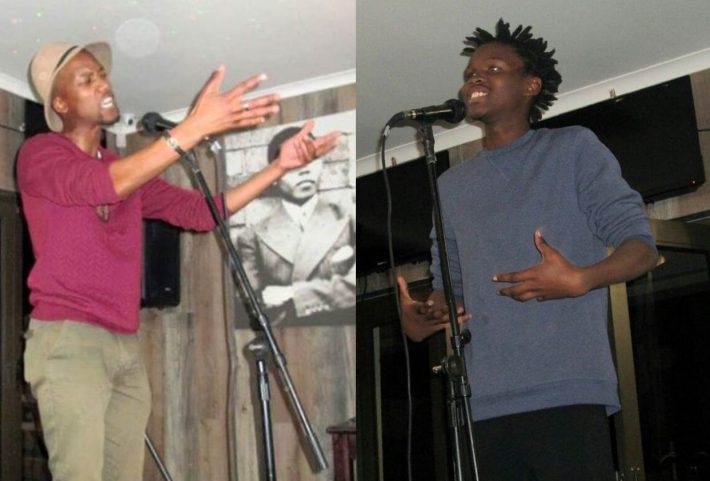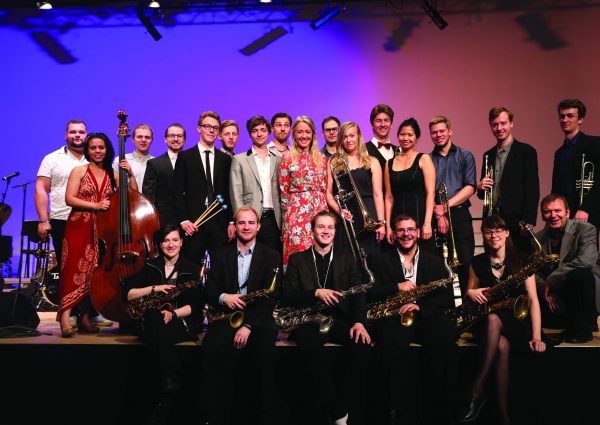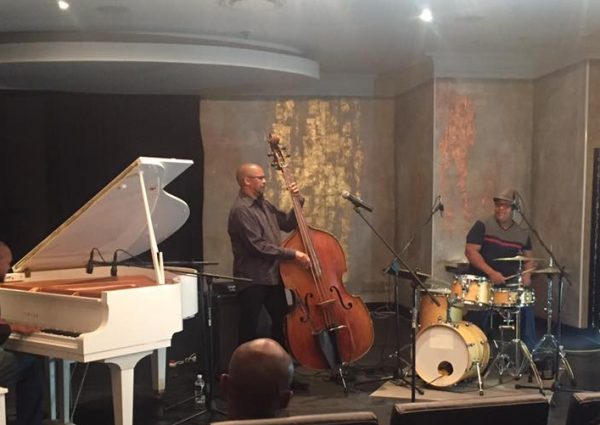In the stead of judging poetry, it seems the judges are hell-bent on creating controversy and drama, writes ART STATE publisher Mpho Matsitle.
Often times in art spaces – poetry more to the point – we behave like the citizens and officials of Hans Christian Andersen’s great city in his classic short story, The Emperor’s New Clothes. Understandably so, because poetry is such a precarious attempt, a nervous condition – one never knows whether it’s their fault or the poets’ for not ‘getting it’.
Poets sometimes are no different from Andersen’s swindler ‘weavers’ – they tell us they’re doing something majestic, and we have no way of telling any which way. But because we do not want to be found out that we don’t get it, we snap away our ‘applause with no cause’.
“Magnificent,” said the two officials already duped. “Just look, Your Majesty, what colors! What a design!” They pointed to the empty looms, each supposing that the others could see the stuff.
However, the masses filling up the ATKV tent for The Naked Slam at the Free State Arts Festival were the embodiment of the “innocent prattle” of the child who dared shout, “The Emperor is naked.” Here, the Emperor they referred to was not the poet, but much higher up: those who judge the poets.
It was, as are all things, a painful process:
The judges were perched low on the only sofas in the gas-heated marquee, situated right in front of the stage. Next to them in a bar stool was the timekeeper. Only the poets and MC could see their faces. The latter, Bambino – a talented comedian and able host who had the crowd in stitches and quelled revolts that were bubbling with every blunder the judges made – like the Minister of Public Processions in Andersen’s masterpiece, announced the scores that the judges held up for his eyes only.
Things started downhill here – and never recovered.
Up first was Hlox Da Rebel (pictured), who tore the stage to shreds with a solid performance, bringing together Dragon Ball Z and the Marvel superheroes in conversation with the spoken word. It was a marvellous juxtaposition, beautifully rendered, perfectly executed. The result: a paltry six out of ten. This was from the first judge.
Bambino asked, in all earnestness, if maybe the board wasn’t upside down. Maybe it was a nine. The judge stuck to his guns. The other two judges scored him an eight and seven. This was the first time doubt crept in about our Emperor’s new clothes.
Second on the line-up was visiting poet Asa. He rendered a semi-politically charged piece riddled with simple clever lines that elicited chuckles from the wordplay loving hordes. He got a seven from the self-same judge who scored Hlox a six. It is at this time when the brain short-circuits; the fuse could no longer hold. To be crude, we are bamboozled!
We try to dismiss the innocent prattle gnawing at our souls insisting that the Emperor “hasn’t got anything on”. This dismissal is buoyed by the fact that he gets the three other decisions correct – Tshiamo K’s lacklustre performance wins him an overall four, Ladybird’s rousing inquiry into the why of things bags her a position as runner-up for this round, and Tshiamo Malatji deservedly wins the round with his short story of how humans evolved to become the beautiful yet ugly creatures they are.
It’s chaos. But the conditions are perfect. To err is human. We forgive the judges as we head to intermission. Our half-time entertainment is none other than Lingua Franca member Anele. He comes to stage almost reluctantly, his tall frame uncomfortably bogged down by the weight of the words he’s about to deliver. And they are heavy. They carry on their back the world’s favourite image: dead black bodies. Marikana forty-four in particular.
He delivers his lamentation in the language and from the perspective of those cursed marginalised bodies: Fanagalo, the lingua franca that built modern day South Africa. This inspires hairs to stand in ovation, especially given that on this very stage just a day before, a conversation on African languages and the development thereof broke out during the FS Lit-Fest roundtable discussion.
As he steps off stage after instilling the fear of revolution to all the gathered, we are even more confident in our conviction that the judges are alright, given that two of the three are from Lingua Franca.
However this was just “the swindlers [sitting] up all night and [burning] more than six candles, to show how busy they were finishing the Emperor’s new clothes.”
Again Hlox opens up the second round – a “home language” round. Almost as a nod to Anele, Makhafula Vilakazi and Nas, and in a no holds barred isiZulu hate-mail to the township, he announces his resignation from blackness as it were.
Again the crowd goes berserk. The board from our favourite judge goes up. Bambino this time managing to hide his shock announces: five! We are fast running out of excuses for The Emperor now. Can we really continue with the farce of: “How well Your Majesty’s new clothes look. Aren’t they becoming!”?
The other judges offer respite through their solid eights.
The two stand-out performances are BlaqSoul and Ladybird. The latter’s meticulously crafted and passionate manifesto of her poetry journey earned her the highest score seen so far in the slam: all nines. The former hankers for a time past, committing the sin that author Ace Moloi on this stage the previous day warned against: of locking our indigenous languages in a nostalgic and dangerously romantic time capsule.
However, despite some cringe-worthy ideas bandied about therein, her unmatched conviction and flawless delivery earn her a second place in the round. But one must stop to ask how the judges, none of whom is a first language Sesotho speaker, managed to judge these two very non-Generations Sesotho poems?
It is in this round that the nakedness of the citizenry is also seen. Hans Andersen reveals that everyone praised the naked Emperor’s non-existent garments because “nobody would confess that he couldn’t see anything, for that would prove him either unfit for his position, or a fool.” Tshiamo Malatji somehow agreed to the draconian unreasonable demand for him to perform in a language he doesn’t speak. But a poem in Sesotho he wrote (all on his own he tells me excitedly after the slam) and performed.
It was at best a painful exercise. The words were slipping and falling in an unfamiliar tongue. There was sneering and muffled laughter all about. He was slow, he was deliberate, unflinching, in tune with his north star. The poem itself spoke of the very torture he was undergoing at that very moment. Each stanza announced that the feet are a person’s roots. He then went on to give meat to those otherwise useless limbs; they represent family, a home, a culture, and – I imagine he flashed an esoteric smile here during the writing process – a language. He repeats this motif for a couple of stanzas. His Sesotho pronunciation only getting worse.
The last stanza begins with the announcement like the rest of them. Then, curtly, and to general relief, ends with another announcement that he – Tshiamo Malatji – does not have feet. He then walks off stage. Pure theatrical genius. It was well thought through, beautifully crafted, but regrettably delivered.
The judges gave it a generous six (according to our favourite judge it was on par with Hlox’s master performance – go figure!). The audience – who should know better as they know Tshiamo speaks no “vernac” – is unfairly harsh. Only one reason sticks for this schadenfreude (I take it was nice to see the articulate Tshiamo struggle with words as we all do with the shipwrecked language): illiteracy. The audience failed to move beyond the form to the content. They were plagued by the same illiteracy that saw the Emperor prance about naked in front of the mirror with the idiotic words: “It is a remarkable fit, isn’t it?”
Much like the judge who later walked confidently up to the stage to defend their failure when we all knew there was no redemption and that a simple “our bad” would’ve done the trick.
In the third round it is clearly a three horse race. Ladybird unfortunately chokes. Tshiamo comes out guns blazing, proving why he is the defending champion. This round is themed “Homecoming”. Almost as if continuing where he left off in the last round, he draws the imagery of trees. How they claim home in the forest, yet yearn for another home in the sky. The judges for the first and last time bring out the tens, and a nine. Yay!
The cantankerous of us point out that Hlox’s performance, which preceded Tshiamo’s, deserved a similar score.
Homecoming. Hlox projected his voice from within the crowd as he walked to the stage, announcing that the last time he slammed was for his life. He lost. Too many scars he told us, too many “metaphors died on deaf ears” (little did he know the judges too are implicated) – he could not take it anymore, he packed what’s his and left. This tonight – on the VryFees stage – was the resurrection. The prodigal son had returned. Homecoming. It was a brilliant theatrical ploy; him walking to the stage was a metaphor of the prodigal son returning home.
The crowd erupted in orgasmic pleasure. In this metaphor laden homage to all that is home to a poet, Hlox hailed various poetry movements in the land. Another 6 from our favourite judge – and according to him this conceptually consistent piece was eclipsed by BlaqSoul’s pedestrian recital that had very little to do with the theme.
At this point there was no more denying the starkness of the Emperor. The innocent prattle bubbled over. The Emperor was naked!
The judges got on stage to explain their process and offer any aggrieved contestant an audience; an offer that was obviously not taken up as there was a trust deficit.
Tshiamo not only won the slam but won it against a beastly Hlox Da Rebel – he was given a run for his money. It was a tantalising titanic battle. The two rounds that Tshiamo won, Hlox was ferociously nibbling at his heels. The second round that Hlox should’ve won he had left Tshiamo choking in his dust – though it must be said that Ladybird gave Hlox a few headaches in this round.
“First as a tragedy, then as farce,” so goes the Marxist aphorism that best sums up the judging on the night. In the first round many attributed the whole affair to human error, the second round wrought cognitive dissonance, in the last it was just laughed off as a big fat joke.
It was not so much the result that was at odds. Rather, the process. As Lenin is rumoured to have said of Trotsky, the judges clumsily stumbled on the correct decisions. For that we can only thank poetic justice.
Mpho Matsitle is ART STATE publisher and author of Celibacy and Other Cute Little Things. He is @MphoMatsitle on Twitter.






